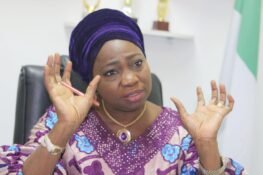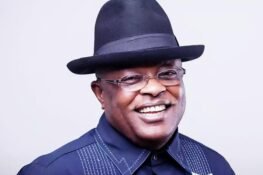In many parts of the world, providing housing for the poor can be a politically touchy subject.
In Western Europe at least, no matter how affluent a neighborhood is, provisions are always made to provide affordable housing with the government regulating rent in certain parts of a city or even going as far as creating mixed income neighbourhoods.
This encourages social mobility and provides poor families access to better health care and schools.
Of course, it hasn’t worked everywhere.
More and more, the poor are being pushed out of Paris, one of the most expensive cities to live in.
Just to be able to live in Paris, low income households pay through their nose for apartments the size of a matchbox.
And the large housing developments, popularly known as banlieues, local officials in the French capital have built over the past decades to provide housing for low income earners have ended up as congested urban slums, where residents remain trapped in poverty.
In some ways, it’s almost like they are walled off from the surrounding city.
READ ALSO: ‘I Never Asked For Your Invitation’, El-Rufai Replies NBA On Withdrawn Invite
But not all political leaders show any interest in addressing challenges faced by the poorest citizens.
Expanding opportunities for the top one per cent is more promising politically.
British Prime Minster, Margaret Thatcher, within seven years of her leadership sold off a million government-built houses that provided homes for the poor.
She also had no interest in investing in public transportation, once famously saying “A man who, beyond the age of 26, finds himself on a bus can count himself a failure.”
This was after privatising the country’s bus network.
A claim can be made that Nasir el-Rufai shares the same philosophy with Thatcher when it comes to providing for the poor.
No minister did more to push the poor out of Abuja.
What mattered to him most was ‘the look and feel of the city’ and the Abuja Master Plan, while he was Federal Capital Territory (FCT) minister.
With his actions, it was almost like he believed, if you couldn’t own your house in the FCT, you had no business being there in the first place.
And so, he embarked on reforms and restoring the territory to its original master plan.
By his own estimation, 1,215 corner shops, 945 buildings within the city were demolished, 300 in Kubwa and 12,000 shanty structures in Idu-Karmo, Jiwa, Gwarinpa, Jabi and Angwan Mada.
There was never any doubt that the demolition exercise had the most impact on the poor.
Sure, the law was on his side.
Abuja was better off for it, but the suffering and cost to livelihoods were simply glossed over.
One thing that can be said is that el-Rufai was consistent with how he treated both the less affluent and the rich and powerful.
It was only during his time as FCT minister that you could apply for a land in the territory, without knowing anyone or greasing palms and actually get allocated one.
Here’s the irony, being insensitive to the poor has not really affected el-Rufai politically.
One thing that can be said is that el-Rufai was consistent with how he treated both the less affluent and the rich and powerful
What is costing him now as governor of Kaduna is his intolerance to dissent and his ‘my way or the highway’ approach to politics, especially when he thinks he is right.
That is what One Bar Initiative and possibly hundreds of lawyers accused him of when they petitioned the Nigerian Bar Association (NBA) to disinvite him as a speaker in the upcoming Annual General Conference of the association.
NBA obliged and disinvited el-Rufai, but was quick to say that not because it felt the governor was guilty as accused.
Rather, he was disinvited because the petition was dividing the association.
Paul Usoro, the outgoing NBA president, who participated in the decision to disinvite el-Rufai and also reacted to the fallout has said the decision had nothing to do with religious and ethnic bias as is now being insinuated.
In so many ways though, the NBA decision appears more political than rational and also an expression of the same intolerance the governor is being accused of.
The consequence has been even deeper divisions within the NBA leading some state branches to openly rebel against the decision of the National Executive Committee of the NBA. Some are even threatening a boycott of the three-day conference between August 26 and 29. On the political front, every organisation that has differences with el-Rufai is rejoicing.
In the petition, One Bar Initiative raised el-Rufai’s intolerance towards lawyers and the legal profession and his reported threat to abduct Ms. Gloria Ballason in 2016 for criticising him, his many statements relating to violence, but most prominently, the petition featured the killings in Southern Kaduna.
In his own defence, el-Rufai accused the NBA denying him fair hearing and suggested that the people of Southern Kaduna are part of the problem.
He also expressed belief that the security challenges in Southern Kaduna are not separate and distinct from those in the entire state and the wider northwest region, which is probably a truth nobody wants to hear.
It is likely that lawyers who petitioned the NBA were more focused on the governor’s intolerance towards their profession.
It would explain why they don’t feel so strongly about the insecurity in other states like Katsina, Zamfara and Sokoto.
READ ALSO: NBA Withdraws El-Rufai’s Conference Invitation
But it was the killings, not his treatment of lawyers, that was central in their petition.
And then el-Rufai’s response, which basically ignored the allegation of undermining the profession has only heightened the stakes, making this more than just a political stand from the NBA.
What makes it is worse that the NBA is now being accused of religious and ethnic bias.
The fact that the acted in defence of one part of Kaduna and that mostly religious groups and northern branches of the NBA are speaking in defense of el-Rufai is bad for the association, its credibility and cohesion. If left unchecked, it could haunt the association for a long time to come.
President Muhammadu Buhari has faced allegations of being religiously insensitive and not doing enough to protect Christians.
But it would be unthinkable for the NBA to invite him to speak at a conference and then later rescind because a petition had been written against him.
In fact, in circumstances that have been questioned, his government has sacked a sitting Chief Justice of Nigeria and even has the present NBA president on trial for criminal wrong doing.
Yet, the Vice President, Yemi Osinbajo and the Minister of Justice, Abubakar Malami are both slated to speak at the NBA conference.
Maybe Nasir el-Rufai is truly a divisive figure and the petition against his speaking role was tearing the association apart.
In a totally unrelated event, the association is just coming out from a crisis that also caused deep divisions, only the aftermath was handled in an entirely different way.
Allegations were made and a petition written that the voting process in the recent NBA election that held electronically on July 29 and 30, was flawed and should be cancelled.
The Board of Trustees of the NBA, which handled the petition agreed that the issues raised were of serious concern.
It however said the election could not be cancelled and advised the petitioners to overlook the flaws in the overall interest of the Bar.
The NBA probably succeeded in dousing tension over a flawed election, but it has also succeeded in fueling the fire of ethnic and religious strife, a peculiarity of Nigerian politics, by mismanaging something as simple as an invitation to speak at its annual conference.








